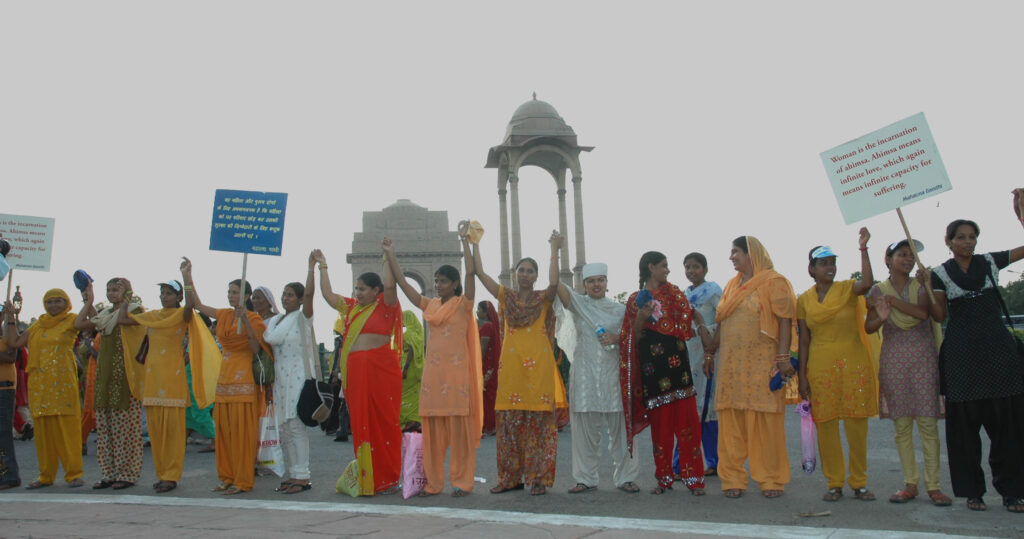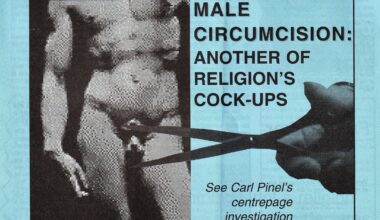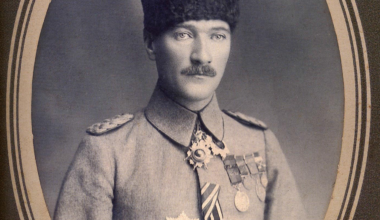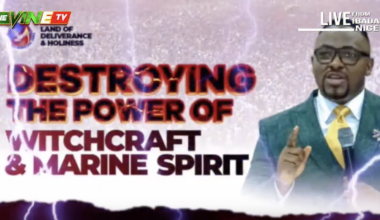
On 26 September 2023, the X handle of Pakistan’s Aurat March tweeted: ‘It’s important to keep in mind that menstruation is a biological process & biology is different from gender (which is socially constructed). Not all those who have a uterus are women & not all women have a uterus. Reducing a woman down to a uterus is misogynistic.’
Aurat March, or ‘Women’s March’, is an umbrella group led by feminist activists, which organises demonstrations across Pakistan’s major cities on International Women’s Day, and engages in other forms of rights activism across the rest of the year. Aurat March’s tweet sparked the customary backlash against the group in Pakistan, but also led to more constructive critiques from certain quarters, including a BBC Urdu article. The article cited concerns raised by certain women over Aurat March’s tweet on the grounds that it erased the biological reality of women, while also quoting the Aurat March organiser’s defence of their message.
Aurat March’s message echoed the claims of gender identity ideology, which are at present the subject of bitter disagreement in the West. The ideology claims that a person’s gender, unlike the biological sex they are born with, is down to that person’s own feelings and hence entirely subjective and a matter of self-identification: as Aurat March’s tweet puts it, that gender is ‘socially constructed’.
While evidence of gender dysphoria, and individuals identifying outside the male and female binary, can be found across human history, consolidated transgenderism emerged in the latter half of the twentieth century. Western gender identity ideology differs from clinically diagnosable variance, or the earmarking of a third gender used to categorise individuals who do not fit the binary across the world. Instead, it seeks to synonymise those born in a particular sex with those identifying as such from the opposite sex, while paradoxically allotting them separate ‘cis’ and ‘trans’ labels respectively. Perhaps its most contentious assertion remains that ‘trans women are women’, which is the essence of the above-cited tweet by Aurat March and of narratives upheld by many women’s rights organisations in the region, such as Feminism In India.
It should be self-explanatory why ‘trans men are men’ never became the transgender rallying cry: quite simply, biological men are less likely to be concerned about invasion of their spaces. As the philosopher Alex Byrne put it in an interview for the Freethinker, ‘Generally speaking, men could not give a fig about whether trans men are included in men-only sporting contests or use men’s changing rooms or are in the male prison estate.’
On the flipside, regardless of where one stands on the gender debate, modern-day transgenderism quite evidently clashes with hard-earned sex-based rights that women activists have toiled for over the past century. In the West, concerns over female physical and reproductive integrity, and the desire to retain women-only spaces, have transformed bathrooms, prisons, and sports competitions into gender ideology battlegrounds. But while the simmering debate over the clash between transgenderism and sex-based rights is founded over a largely egalitarian bedrock in the West, the thoughtless imitation of gender identity ideology has much more perilous repercussions in the Indian subcontinent, with its predominantly patriarchal culture.
Attitudes to women and the opportunities available to them differ between the South Asian states. However, as a regional bloc, these states are among the lowest ranked on global gender indices. In the World Economic Forum’s Global Gender Gap Report 2023, six of the seven SAARC states, namely India, Sri Lanka, Nepal, the Maldives, Pakistan, and Afghanistan, ranked lower than 100 in the 146-country rankings; India did so despite staking a credible claim to being a global power. Across South Asia, institutionalised gender disparity, upheld by state-backed radical religionism, as well as skewed cultural norms, and ethnic, racial, or casteist divides, has made it more critical than ever for local feminists to take up a united front against the patriarchal forces which are still very much alive. However, the influx of gender identity ideology has polarised subcontinental feminism to a point where, in a bitter irony, violent misogynists have a clearer understanding of who or what a woman is than organisations dedicated to safeguarding women.
I spoke with over 100 feminist activists across the Indian subcontinent to discuss the influence of gender identity ideology on South Asian women’s rights movements. The investigations have unveiled ominous patterns. Most activists in leadership positions tended to be proponents of gender identity ideology: this reflects the almost unanimous espousal of this ideology across major feminist organisations in the region. For instance, veteran Indian women’s rights activist Urvashi Butalia, co-founder of Kali for Women, India’s first feminist publishing house, insists ‘trans women are essential to Indian feminism’.
Many gender critical feminists whom I spoke to preferred to remain anonymous, fearing backlash within their organisations and movements. What was also evident was the urban-rural divide in the endorsement of narratives, with many from smaller towns critiquing the predominantly Western-educated feminist leaders for enforcing ‘foreign ideas’ that were detached from the ground realities of these countries.
In fact, it is simply not possible to initiate an egalitarian debate on gender identity in traditional rural communities like those scattered across southern Asia. In these communities, there is institutionalised gender inequality. Their religionist laws render women insignificant or unequal in familial matters, or half as worthy as men in legal matters. Indeed, the entire course of your life may be predetermined if you are born female. In such communities, women are second-class citizens. Given this codification of gender disparity, the idea of campaigning for the right of men to identify and be legally treated as women would simply be met with incredulity.
On the other hand, in the current legal landscape, there are good reasons why women might want to identify as men: so as to receive better treatment. Many gender critical feminists I spoke to insist that this is happening already. The Indian film maker Vaishnavi Sundar covered the topic in a 2021 documentary on the effect of gender identity on women and girls, especially in developing countries, entitled Dysphoric: Fleeing Womanhood Like a House on Fire. Some feminists I spoke to in Bangladesh also said that women are being encouraged by sexist Islamic inheritance laws to identify as men, given the sharia provisions tilted in men’s favour. Of course, there are then complications when trans people want to detransition – but that is another story.
This does not mean that an idea or ideology should be rejected in south Asian countries simply because it has its origins in the West. Doing so would simply pander to the hypernationalist or religionist rhetoric that labels all foreign ideologies that differ from a local community’s values as a conspiracy that aims to destroy their religious or cultural beliefs.
This consideration has led to a dilemma for gender critical feminists in South Asia, who want to challenge the sweeping enforcement of Western gender identity ideology, while at the same time being determined not to ally themselves with religionist bigots who advocate violence against marginalised communities at home. Making dissent even more complicated is the fact that even those South Asian feminists who have criticised the gender ideology pervading left-leaning Western media have used a religious or cultural relativist rationale to justify their position. For instance, they have deployed oxymoronic terms like ‘Islamic feminism’ to advocate for movements more palatable to the masses. Yet the idea that a religion that is explicitly misogynistic by modern standards could be inherently feminist is ludicrous.
Put simply, gender equality is widely considered an unpalatable foreign idea in South Asia. When faced with two unpalatable foreign ideas that conflict with each other – gender equality and gender identity ideology – feminists, in their efforts to resist hyperconservative backlash, are truly between a rock and a hard place.
My investigations have further exposed the role played by the plight of South Asia’s hijra or khawaja sara community in the acceptance of the prevalent transgender ideology in progressive circles. The hijra have been institutionalised as the ‘third gender’.
In South Asia, the ‘third gender’ has historically denoted intersex individuals and eunuchs, and has therefore been grounded in biological reality. However, both historically and today, many biological men and some women have also identified as the third gender, which also overlapped with homosexuality. In short, the ‘third gender’ has been used as a broader umbrella term to incorporate all identities that did not align with the heterosexual male or female. Critically, however, it has never clashed with sex-based rights or gender critical feminism, since it has not attempted to impinge on the categories of male and female gender. In contrast, Western transgender ideology negates this idea of a third gender, insisting on self-identification even for the determination of who a man or woman is. Yet having a third category actually helps to address many of the conflicts within genders and movements, not least because the hijra or khawaja sara community do not stake a claim to women’s spaces.
Surprisingly, numerous local feminists interviewed for the piece were unaware of western transgender ideology; instead, they equated the term ‘transgender’ with the indigenous hijra or khawaja sara. This tendency to identify the foreign concept with the local one also explains the passage of transgender rights legislations in some South Asian countries, even though homosexuality is still criminalised or violently punished in those countries, and many crimes of conscience are still punishable by death. In Pakistan, for instance, the Transgender Persons (Protection of Rights) Act 2018 was passed as a codification of the fundamental rights of the hijra community as a third gender. However, its phrasing, which endorses the right for anyone to identify as a man or woman, regardless of their biological identity, led to it being struck down by the Federal Shariat Court as ‘un-Islamic’ on the grounds that it ‘promotes homosexuality’, which is criminalised in Pakistan.
For many South Asian liberals, to question transgender ideology would simply be to endorse the brutalities and discrimination that LGBT people of all kinds continue to face in South Asia, ranging from taboos surrounding their existence to gruesome murders. In the light of the physical threats faced by the local transgender or khawaja sara community, even gender critical feminists have been forced to reconsider their critique of transgenderism.
In this turbulent context, it is easy to view Western transgender ideology as simply another cause that is trampled on by local prejudice, along with homophobia and misogyny. However, in reality, doing so can muddy the waters still further.
Many activists, especially those outside South Asian urban centres, insist that the ideological polarisation imported from the Western culture wars needs to be countered by movements that are clear and cognisant of the differences that shape communities in the Indian subcontinent, and which channel their activism accordingly.
‘The gender debate has indeed polarised not only the West but [societies] all over the world. The conflation of the hijra community with the transgender identity [is a] complex issue. It is crucial for organisations to recognise and address the unique challenges faced by the hijra community [and] emphasise the importance of nuanced understanding,’ says Dr SN Sharma, the CEO of the Rajasthan Samgrah Kalyan Sansthan, a human rights organisation based in Ajmer, India, which is dedicated to supporting the marginalised.
In a 2017 BBC documentary, Inside Transgender Pakistan, members of the khawaja sara community expressed their condemnation of western transgenderism as a threat to their right to identify as the third gender. Today, that hard-won identity is being labelled ‘problematic’ in progressive circles in South Asia itself, from Nepal to Bangladesh. Prominent hijra activists in the Indian subcontinent now are echoing western transgender narratives. One explanation for this, which is perhaps pragmatic rather than idealistic, is the growing support for transgender rights as a whole among non-governmental organisations, which often rely on Western funds for their sustenance. The funding and its concomitant influence from the West are a critical factor for such organisations in the region, especially those geared towards fighting for human rights. This necessary influence inevitably aligns the activism compass of feminist movements to the West as well.
This alignment with human rights values in the Western tradition largely results in important work being done on the rights front. Yet at the same time, it inadvertently puts the urban Western-educated elite at the helm of local progressive movements. Many working class feminists and senior women’s rights figures whom I spoke to underlined the fact that, in the past, rights activism was often voluntarily undertaken by women in parallel with full-time jobs or family lives. Today, however, rights activism has become an entire profession and a livelihood for many individuals. This situation reaffirms the stranglehold of the elite over human rights in India, Pakistan and elsewhere. These urban, Western-educated leaders face little challenge from less Westernised subordinates, often from smaller towns, who are unwilling to challenge narratives dictated from the top, out of fear that it might jeopardise their own position – and employment.
‘Not only narratives, they also promote fellow feminists from their urban inner elite circle,’ journalist and activist Tehreem Azeem, who has worked for numerous rights organisations, told me. ‘They are Western-educated and follow woke ideas and this reflects in their narratives, especially on social media. We often don’t know who is making organisational decisions, you are not allowed to enter that circle.’
This takeover of the Westernised elite results in indigenous rights movements even echoes Western language, often quite literally. One prominent example is that many feminist organisations across the subcontinent ask participants at events and trainings to list their preferred pronouns in the English language. This, many feminists from smaller towns insist, is a regular practice even in rural areas where English is not as commonly understood.
‘In many workshops and conferences they would ask participants to introduce themselves and then share their pronouns, which I always felt was extremely bizarre, given the context of our setting,’ says Azeem. ‘Even if you are importing something from the West, you can try to bring it in the local context.’
More than the categorisation of preferred pronouns, the fact that this exercise is done almost exclusively in the English language is perhaps the biggest giveaway in identifying the disconnect between the values of the human rights elite and the masses. The most commonly spoken languages across the Indian subcontinent, including over a hundred regional languages and Hindi and Urdu (the most widely understood), are intrinsically gendered and devoid of gender neutral pronouns and phrases once conjugated with the subject. Those displaying English language pronouns, especially those who are not transgender themselves, seem less invested in founding ungendered language at home than they are in finding commonality and acceptance within elite Western circles.
Many feminist workers told me that the leaderships of their rights organisations feel a need to align themselves with foreign narratives, because a large proportion of the funds for such groups comes from Western countries. Some workers said that it is pressure from Western donors that compels local organisations to align their narratives accordingly. Others argued that even though the foreign funders never explicitly dictate the ideology of local groups, there remains competition among organisations within the same country to win Western grants: this pushes a need to find connectivity and validation among them, not least by speaking their language and swallowing their values whole. Furthermore, the South Asian political left is virtually camped in Western institutes: they are educated in the West, have lived there, and spend a considerable amount of time in Western leftist circles.
This inevitably results in an inflow of West-centred arguments. Ironically, many of the postcolonial narratives are churned out by universities based in former colonising countries such as the UK, and readopted by the university-educated elite in their former colonies.
People in South Asia who condemn feminist organisations from the outside, such as influential figures like Jagadish Vasudev or Zakir Naik, predominantly come from a position of opposing women’s rights movements as a whole, preferring to enforce patriarchal norms. A different type of challenge to feminist organisations is posed by dissenters within their own ranks.
In India and Pakistan, as in the UK and the US, gender critical feminists who advocate sex-based rights are targeted – and with the same weapons. ‘Terf’, or ‘trans-exclusionary radical feminist’, is now a slur being deployed to silence gender critical voices in South Asia.
These types of allegations were, for instance, also made against one of the Indian subcontinent’s most prominent feminist activists, Kamla Bhasin. Bahsin, an activist, author and social scientist who passed away in 2021, had decades of women’s rights work under her belt, the last 20 years of which saw her found Sangat, a network of South Asian feminists.
I spoke to thirteen members of Sangat about the allegations that Bhasin faced months before she passed away. Bhasin was accused by various feminist groups, including Feminism In India, of being a ‘transphobe’, because she was critical of the gender identity narrative and endorsed a biological definition of ‘woman’. For these members of Sangat, the treatment of Bhasin was a reminder that even half a century of women’s rights advocacy was not enough for one of its leading activists to be given the space to dissent against gender identity ideology. Most of the Sangat graduates whom I spoke to believed that while disagreements with some of Bhasin’s views have always existed among the network, the unified public backlash against her over her gender critical views came as a shock. This backlash further silenced many feminists into acquiescence over the general direction of the movement.
Even so, many South Asian feminist voices still decide to go public with their dissenting views on gender identity ideology, often at personal cost. Among these is Thulasi Muttulingam, the founder of Humans of Northern Sri Lanka. ‘The wider networks of feminists – it’s a small country and we know each other [and] have networked together on various issues – have cancelled me,’ she says. The backlash, she stresses, came three years ago when she first began questioning the animosity against JK Rowling over her gender critical views. Muttulingam, a member of women’s rights organisation Vallamai, says her women’s day speech was boycotted this year, because she chose the theme of transgenderism and sex-based rights. ‘It was the Social Scientists Study circle and their monthly meetings are usually well attended,’ she said. The poor attendance ‘told me how much the liberals were scared off by the topic. Then a network of diaspora and Tamil feminists held a Zoom meeting to misrepresent what I said and denounced me as a bigot [and] transphobe.’
Natasha Noreen, the founder of Feminism Pakistan, saw a similar backlash when she shared gender critical views on her Facebook page which endorsed Rowling’s position on womanhood and insisted that biological men cannot become women simply by identifying as such.
‘The cancellation campaign began. Activists from Islamabad and Lahore started bashing me,’ she said. ‘I was invited to an online session, where I was told it was going to be a neutral talk, while four other participants and the host all were on one side just humiliating me.’ Noreen, like others critical of transgenderism and its denial of sex-based spaces for women, has been removed from social, professional, and activist groups. ‘Fellow [women’s rights] activists have stopped talking to me. Pakistani feminists were my tribe, my people.’
Vaishnavi Sundar, meanwhile, was not just cancelled in India but also in the US, where the scheduled New York screening of her documentary on workplace harassment, ‘But What Was She Wearing’ was stopped owing to her views on pre-operative trans women. ‘Why are you cancelling an Indian woman [in America] for something she tweeted on her private Twitter? I just wanted to preserve women-only spaces,’ she told me. Since then Sundar has been blocked out of many feminist initiatives and groups and has had to focus on working independently. ‘People just stopped responding, stopped talking, stopped doing a lot of things that they used to before,’ she said. ‘I used to be one of those go-to people on things concerning women. Because I’ve researched on this for so long. It’s as if I made this observation on the trans ideology and suddenly my expertise and my films don’t matter anymore, because I have committed the cardinal sin of saying trans women are not women.’
It is important to underline here that many of these South Asian feminist voices cancelled as ‘transphobes’ have been long advocates of gay rights and the rights of the traditional hijra community in South Asia. Much of the critique of modern transgenderism made by such gender critical feminists aims to distinguish biological sex, and to use that scientific reality to reaffirm the importance of women-only spaces. It is certainly not intended to support the persecution of individuals.
Wherever one stands on the divide between Western transgender activists and gender critical feminists, there are two irrefutable and vital facts that need to be taken into consideration. First, that there is a clash between advocates of gender identity ideology on the one hand, and, on the other, advocates not just of sex-based, but also of gay rights, and those defining their sex or sexuality based on the human anatomy. The second fact, especially critical to the Indian subcontinent, is that modern transgender ideology is very novel to the region, where individuals not considered male or female have historically been assigned to a third, broader gender.
Faced with these realities, the silencing of gender critical feminists, especially among the urban women’s rights groups, is bound to be detrimental not just to women’s rights, but to the well-being of all groups that these organisations are claiming to protect.
This point cannot be stressed enough. The proponents of gender neutral language on issues that overwhelmingly concern the female sex insist that all historically considered ‘women’s issues’ are no longer in fact women’s issues. If their approach is adopted without question, then for all practical purposes there is no exclusive women’s rights movement, and in turn no feminism.
What exclusive women’s issue would Feminism In India be concerned with, if feminism is redefined to concern every type of person except the cisgendered heterosexual male? Why would ‘Aurat March’ continue to use the ‘Aurat’ prefix and not call itself Insaan, or ‘Human’, march? This type of attitude from Western transgender activists and ‘allies’ has made it all too easy for patriarchal, conservative and misogynistic detractors of feminism, especially in South Asia, to insist that there is no such thing as exclusively women’s rights. Feminist groups in the Indian subcontinent are practically making the same argument as their conservative opponents – ostensibly in the name of progress.
Local movements that had begun to put forth the notion that a woman should not be limited by her anatomy are now upholding the idea that a woman is not defined by any particular anatomy at all. Similarly, where the purpose of challenging gender was to oppose gender roles and stereotypes, now those who purport to challenge gender stereotypes either use those very stereotypes as evidence of transgenderism, or try to eradicate or deny the idea of gender altogether.
Tasaffy Hossain, the founder of the Bangladesh-based organisation Bonhishikha, which uses the tagline ‘unlearn gender’, argues that much of the conversation in South Asia on transgender rights is still based on the realities of the West, and that it is critical to uphold the concerns of all groups and all identities in the region. ‘There is the issue of what feels safe for whom, what is triggering for whom, which is a deeper conversation. Cis women would have a different concept of what is safety to them. Trans women would have a different idea of what is safe to them. Even within the queer spaces we have seen, it’s not always safe just because everyone is queer,’ she told me.
Hossain echoes pretty much every South Asian women and gender rights organisation, those advocating gender identity ideology and its critics, when she says that ‘not enough conversation has been had’ over these concerns. However, many of those leading feminist organisations in the Indian subcontinent, who lament the lack of such conversations, have done little to allow an equal opportunity to share opposing ideas within feminist circles, and have in fact predetermined the conclusion of discussions that are yet to be openly had.
The failure to acknowledge the distinguishing characteristics of different identities, and in turn the exclusivity of their concerns, is creating rifts within minority movements that have only just begun to reverberate at the grassroots level. This is only emboldening the misogynistic forces within South Asia, such as religionist groups and ultra-conservative politicians, who are successfully exploiting the gaping hole between insufficiently dissected gender ideas and the depressingly patriarchal, religious-supremacist realities on the ground.
To counter the regressive forces that are targeting marginalised communities in the Indian subcontinent, it is important that South Asian rights movements embrace the dissenters within their communities, and appreciate the distinctions that they want to make. This is the only way that they will be able to address their different concerns, which are grounded in the unique realities of individuals, subgroups and the region as a whole. Similarly, it is time for Western advocates of gender identity ideology to acknowledge the negative impact which their ideology is having on the rights of violently marginalised people across the world, such as the women and hijra in the Indian subcontinent. For the problem with absolutist ideologies is that they are theoretical and totalitarian – and as such, they always risk becoming inhumane.
Enjoy this article? Subscribe to our free fortnightly newsletter for the latest updates on free thought. If you can, please consider making a donation to support our work into the future.








Your email address will not be published. Comments are subject to our Community Guidelines. Required fields are marked *
Donate